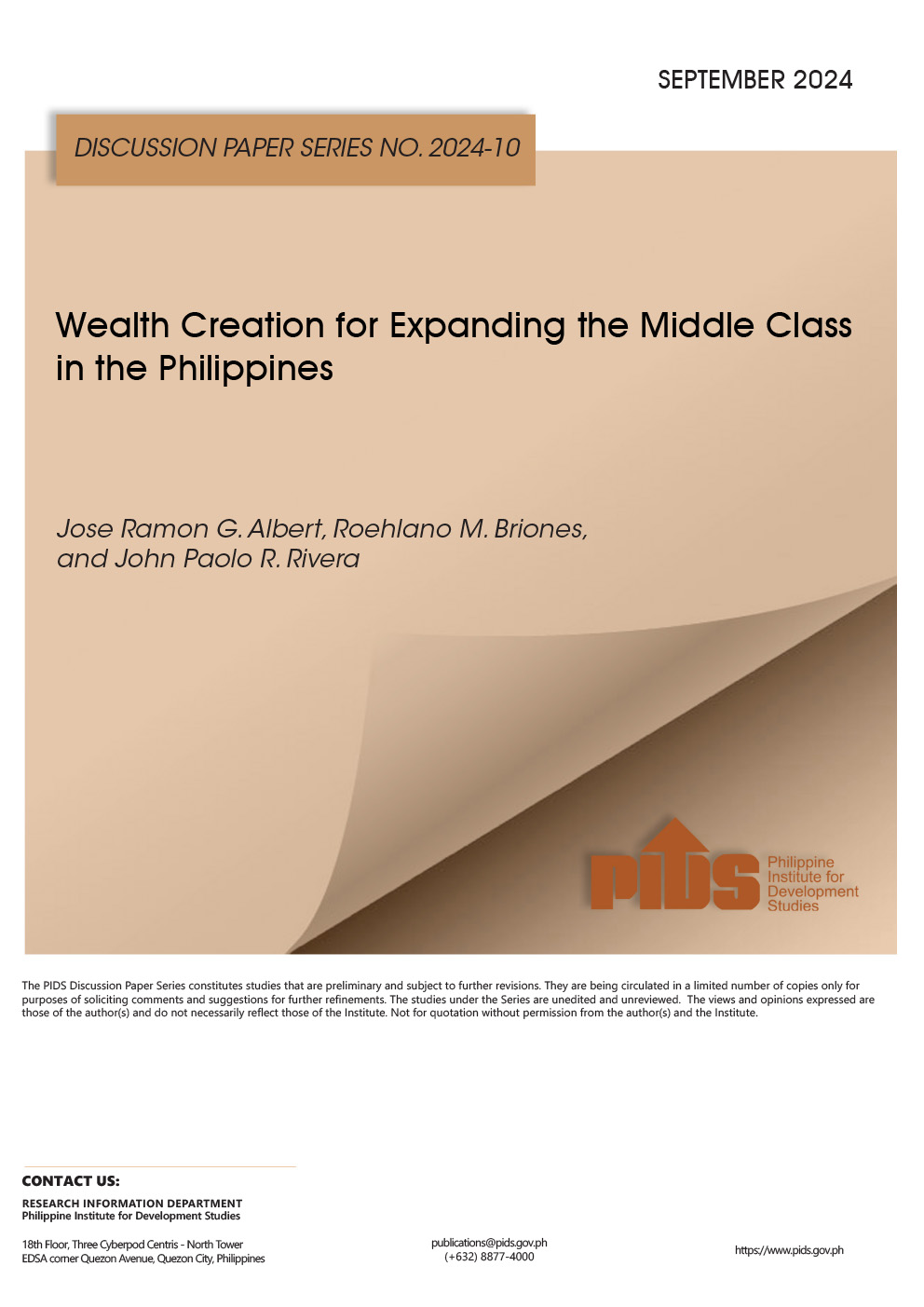QUEZON CITY, Dec. 31 -- With the increasing use of platform economy nowadays, regulatory frameworks must be in place to ensure that consumers are protected.
A study funded by the Asian Development Bank and conducted by state think tank Philippine Institute for Development Studies (PIDS) defined a platform as “a digital intermediary and infrastructure that brings together various parties through the internet to interact, thereby matching supply and demand in a multi-sided market”.
These platforms include transaction platforms such as Grab and Uber; innovation platforms such as the iOS and Android operating systems; integration platforms such as Google, Apple, Facebook, and Alibaba; and investment platforms such as Rocket Internet.
According to Jose Ramon Albert, PIDS senior research fellow and author of the study, the emerging platform economy benefits both producers and consumers. However, it also “brings many risks to fair competition, trustworthiness, consumer rights, including data privacy and decent working conditions”.
He called for the creation of new regulatory frameworks that can “allow connection, participation, and inclusion of those previously unmatched in traditional markets, and thus make socio-economic growth inclusive”. To do this, Albert stressed the need to understand and measure the impact of the platform economy.
“Measurements on the platform economy have wide policy implications for ensuring [that the] positive dynamic of social good of platform economy continues while preventing possibilities for widening inequalities and power imbalances in society,” Albert explained.
This, however, is a 'statistical challenge' given the complex business processes, the cross-sector and cross-border capacities, and the rapid growth of these platforms as goods and services vastly change as well.
With usage data in platforms as a possible proxy for economic value, Albert said that the help of the national statistics offices (NSOs) is needed in measuring platforms. He said that the “web-scraping of platforms by NSOs can be a valuable tool for obtaining information on socioeconomic activities in platforms.”
NSOs should also start working with private sector organizations that are collecting various data on the platform economy. They should also reengineer their existing surveys as well as supplement traditional data collection with alternative data sources.
“NSOs need to develop mechanisms for integrating new data and new data sources into national accounts compilations,” Albert said.
According to Albert, regulations and policies need to be in place as these can enhance people’s trust in the platform economy, particularly on digital payments.
“Encouraging platforms, especially logistics and ride-sharing providers, to only make use of digital payment instruments will require a strong consumer protection policy framework, including a return and refund policy. Consumer confidence in the right to return a defective product and receive a refund can likely improve trust in digital payments. The difficulty is sometimes on the part of enforcement of laws,” Albert pointed out.
Further, Albert reminded that “regulations should not easily stifle innovative activity.” He urged regulators to create an enabling environment for the platform economy that promotes wealth creation. These benefits, he added, should be shared among the people for a more inclusive and sustainable growth. (PIDS)
A study funded by the Asian Development Bank and conducted by state think tank Philippine Institute for Development Studies (PIDS) defined a platform as “a digital intermediary and infrastructure that brings together various parties through the internet to interact, thereby matching supply and demand in a multi-sided market”.
These platforms include transaction platforms such as Grab and Uber; innovation platforms such as the iOS and Android operating systems; integration platforms such as Google, Apple, Facebook, and Alibaba; and investment platforms such as Rocket Internet.
According to Jose Ramon Albert, PIDS senior research fellow and author of the study, the emerging platform economy benefits both producers and consumers. However, it also “brings many risks to fair competition, trustworthiness, consumer rights, including data privacy and decent working conditions”.
He called for the creation of new regulatory frameworks that can “allow connection, participation, and inclusion of those previously unmatched in traditional markets, and thus make socio-economic growth inclusive”. To do this, Albert stressed the need to understand and measure the impact of the platform economy.
“Measurements on the platform economy have wide policy implications for ensuring [that the] positive dynamic of social good of platform economy continues while preventing possibilities for widening inequalities and power imbalances in society,” Albert explained.
This, however, is a 'statistical challenge' given the complex business processes, the cross-sector and cross-border capacities, and the rapid growth of these platforms as goods and services vastly change as well.
With usage data in platforms as a possible proxy for economic value, Albert said that the help of the national statistics offices (NSOs) is needed in measuring platforms. He said that the “web-scraping of platforms by NSOs can be a valuable tool for obtaining information on socioeconomic activities in platforms.”
NSOs should also start working with private sector organizations that are collecting various data on the platform economy. They should also reengineer their existing surveys as well as supplement traditional data collection with alternative data sources.
“NSOs need to develop mechanisms for integrating new data and new data sources into national accounts compilations,” Albert said.
According to Albert, regulations and policies need to be in place as these can enhance people’s trust in the platform economy, particularly on digital payments.
“Encouraging platforms, especially logistics and ride-sharing providers, to only make use of digital payment instruments will require a strong consumer protection policy framework, including a return and refund policy. Consumer confidence in the right to return a defective product and receive a refund can likely improve trust in digital payments. The difficulty is sometimes on the part of enforcement of laws,” Albert pointed out.
Further, Albert reminded that “regulations should not easily stifle innovative activity.” He urged regulators to create an enabling environment for the platform economy that promotes wealth creation. These benefits, he added, should be shared among the people for a more inclusive and sustainable growth. (PIDS)












